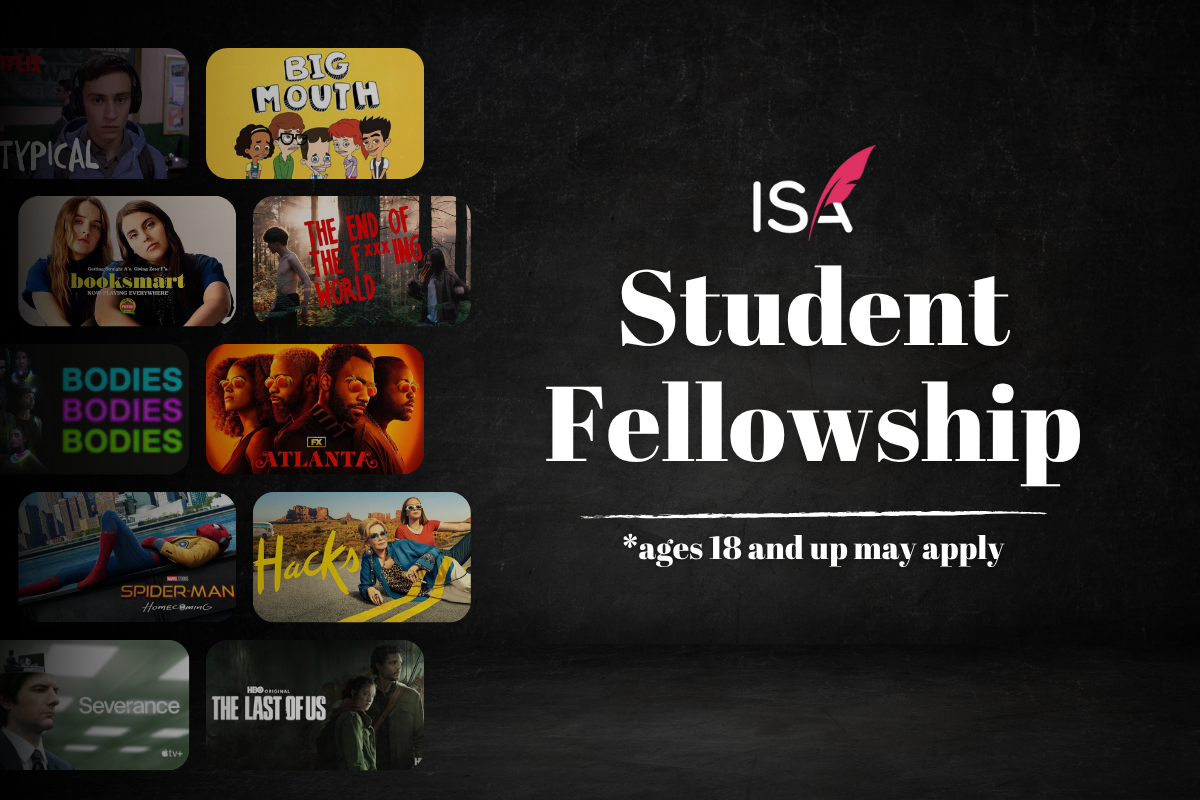The Era of the Multi-Hyphenate: An Interview With Actress, Producer, and Writer Mildred Marie Langford [SERIES]
Multi-hyphenate creative Mildred Marie Langford gives insight into her storytelling compass.
This series is an exploration of the multi-hyphenate phenomenon. We dive into the insights of experts who are either multi-hyphenates or have witnessed the evolution of the screenwriting profession firsthand. They share their experiences and perspectives to set those screenwriters who’d like to test the multi-hyphenate waters in the right direction.
This interview has been edited for content and clarity.
Many people suffer in isolation. In times of struggle, most feel alone, trapped in the confines of their own mental or physical homes. But what if there are people out there just like us? And what if there is someone who’s willing to lend a listening ear and a helping hand?
Stories introduce us to people we’ve never met. They open the doors to worlds we haven’t seen before. In doing so, they help combat one of our worst enemies—loneliness. Did you know? they whisper. Are you aware that there are people whose experiences, feelings, and needs are similar to yours?
Professional storytellers can help their audiences feel connected to the world—once again, or for the very first time. To do so, they usually have to break through their own barriers. Each story requires its own medium and creative approach. So, storytellers need to rid themselves of silo thinking and embrace storytelling in its entirety—and with it, the multi-hyphenate life.
“We all seek the same things”
“With the work that I do, I want to open hearts and minds,” says actress, writer, and producer Mildred Marie Langford, who goes by ‘Millie’. “I hope to bring more understanding and unity by showing that we are all in this together. I think we all seek the same things. Everybody is looking to be loved and nourished. Everyone wants to be seen and heard. How we go about things may be a little different. But ultimately, we are all looking for the same outcome. So, how do we come to a common ground on that and work together?”
For Millie, the answer lies in storytelling. “Whether it’s through music, dance, theatre, or film, everyone in every demographic loves one of those forms of art,” she explains. “It’s all storytelling in some capacity. So, it’s a great conduit in how to show a mirror of what’s going on in the world around us.”
In essence, this is what Millie wants—to present audiences with a certain situation and let them interpret it as they see fit. “All I can do is say, ‘Hey, this is my story. This is what I feel. And I hope that maybe you recognize something in it.’Maybe you’ll go, ‘I had no idea you felt that way.’ Or, you might know someone who’s been through the same thing but has never been able to open up about it—and maybe now, in conversations, you can approach them differently about their experience.”
“We’re engaging the audience through post-show discussions”
Most stories reach their ‘finishing line’ with two magical words—The End. But Millie likes to go beyond the story. So, for some of her projects, that moment marks a seamless transition from fiction to reality.
A great example is Brothers of Affliction, a stage play she co-produced, written by her friend Paris Crayton III. It’s about three brothers who get stuck in the oldest brother’s apartment and have to confront their past traumas. “With that piece, we’re engaging the audience through post-show discussions with mental health experts,” says Millie, who helped set up these audience interactions. “Audiences have been really appreciative of the play, which centers around what mental health looks like in the Black community. And it was very helpful to have the experts in our post-show conversations go, ‘It’s OK to not be OK—we’re here to help if you need it.’”
Millie’s upcoming project, NOLA: The Beginning, will also include the audience. “It’s a short film about Black motherhood across centuries,” Millie explains. “Here, the question is, what can we do to survive and thrive in the world, as well as raise our children in safe environments? We’ve organized a crowdfunding campaign to hopefully get this film made. If we succeed, we'll put together a screening tour for various demographics, communities, and industry experts. There will also be an activity people can engage in, which will bring them into the piece before they watch it.”
“The piece took on a larger role, one that went beyond me making it”
Millie has worked on a variety of projects, but there is a common denominator. She first discovered it when she made The Three Phases of Isa, a short film that follows the internal struggle of a woman trying to break free from domestic violence. It was the project that marked Millie’s shift towards the multi-hyphenate life—she wrote, produced, and starred in it. Playing three different versions of the protagonist who interact with each other, she portrays a woman deeply torn between fear, love, and self-worth.
“The Three Phases of Isa started out as a writing assignment for an acting class,” she says. “The teacher gave us a prompt—‘Write about someone who’s in a situation they can’t get out of.’” Millie’s mind went to people in abusive relationships. She wrote a piece about a woman who’s been in a 20-year relationship with her college sweetheart, who, as it turns out, isn’t the man he presented himself to be. During the showcase, the piece got great responses. Millie’s friend suggested that she turn it into a short film. After some consideration, Millie decided to go for it.
Her decision eerily coincided with unexpected news. “While I was working on the film, I heard that a childhood friend of mine was in an abusive relationship and ended up in a coma,” she says. “After 10 days, they took her off life support. I learned that horrible things had happened within that relationship—which I’d had no idea of.”
Millie dedicated the piece to her friend. “I’d written the story based on a prompt,” she says. “But to then learn that someone I knew was actually dealing with this on a really detrimental level, and the consequence was that she lost her life—it changed the trajectory for it. The piece took on a larger role, one that went beyond me making it.”
In hindsight, Millie believes The Three Phases of Isa solidified her purpose. She discovered that she wants to explore issues of social relevance through her work—seen through the lens of hope. “Being a person of faith, I’m interested in seeing these things come together in conversation,” she says. “I think you need to have faith in difficult moments. How else will you be able to get up every day and keep at it? How do you do that without some sense of hope that things can get better?”
“If you get up and write, you’re a writer”
Although Millie now juggles multiple roles, she hasn’t always been a multi-hyphenate. At 14, she decided she wanted to be an actress and then followed the ‘traditional route’—she signed up for theatre classes and went on to get a college degree in theatre. For years, she worked as a professional actress, doubting whether she was good enough to write and produce, too.
“I had never really done those things before,” she says. “I felt like they needed some kind of training. As it turns out, that’s not necessarily true. If you get up and write, you’re a writer. If you produce something, no matter how big or small, you are a producer. But during that time, I was putting a cap on what I felt I could do. I limited myself because this was my ‘box.’ Acting was what I knew to do and what I was comfortable with.”
It was only when Millie moved from Chicago to L.A. and took additional classes that she began to explore other endeavors. She realized that she is, above all, a creator. She explains, “I don’t have to wait for somebody to say, ‘You can create today.’ I can do that anytime, with anybody. Once I started to own that and get comfortable with it, the idea clicked. I did a web series with some friends—a group project that offered me an opportunity to give producing and writing a try. Then, The Three Phases of Isa came along, and I said, ‘You know what? I really can do this.’”
With newly gained confidence, Millie doubled down on her writing and producing journey. She founded Little Black Pearl Production (an independent film production company) and co-founded The Black Creators Collective (a nonprofit arts organization). These major steps have allowed her to follow the spark she felt. “I want to continue in that direction of producing,” she says, “and help other people tell the stories they want to tell as well.”
“I’m looking to find more moments of stillness”
Purpose is Millie’s storytelling compass. Once you know why you’re telling a story, she believes, you’ll be able to take creative risks and be more vulnerable. “If your whole purpose of creating something is to bring awareness to a situation, you can’t be afraid to share it,” she says. “You have to put it out there. You’ve created this for a reason. So, you need to get comfortable with showing the world what you’ve made.”
In doing so, Millie says, you could also inspire other creatives—“If I can do it, you can do it, too. There’s no limit to what can be made. Sometimes, the industry can make us feel like there are only so many roles or opportunities to give out. But once you say to yourself, ‘There’s no limit to the sky and to how high I can go’—you take those boundaries off of yourself and just go do the thing.”
That type of thinking is creatively freeing, but it doesn’t come without risk. Millie explains, “I can get wrapped up in so many things. You know, I want to make and create. But sometimes, I also just need to sit down for a minute. I’ll tell people, ‘After I do this show, I’m going to take a break. I’m really good.’ But then there are lots of things I want to get done, and sometimes I’m just spinning. As multi-hyphenates, that’s what we do, I think.”
Millie stresses the importance of taking care of your own mental and physical health. That’s why she sometimes likes to stand still, contemplate things, and reset. “It’s a constant struggle for me to find the right balance,” she says. “When I tell myself I’m going to relax today, I try not to go, Oh God, I have to get all these things done. I need to be OK with the silence. I’m looking to find more moments of stillness in my life as a multi-hyphenate—just to reflect on what I’m doing, how I’m doing it, and why I’m doing it.”
If you ask Millie, the latter is by far the most important question—not just because it helps you focus on one project at a time, but also because it gives you courage. “Always find your why,” she says. “It’s just about fulfilling the purpose. I think that’s very helpful to keep in mind. When you’re putting your work out there, you want it to be perfect. You want people to like it. But why are you really doing it, and who are you doing it for? It’s purpose over perfection—that’s what I like to say to myself.”
Annalisa Koukouves is a storyteller, copywriter, and creative writer. In the past 14 years, she has interviewed hundreds of experts in the worlds of art, technology, and business to help them tell their stories in the form of books, scripts, (scientific) articles, essays, opinion pieces, and online content. She was a finalist in the 47th New Millennium Writing Awards and in one of Script Pipeline’s contests. Her work has appeared or is forthcoming in various outlets, including Pipeline Artists, Thrive Global, and Daily Philosophy.
Annalisa is the founder of Key Copy & Content, a storytelling and copywriting business that helps professional storytellers and subject matter experts achieve two goals: to improve their writing skills and to build thought leadership through storytelling. She’s also the creator of Existential Chapters, a philosophical newsletter. Currently, she’s working on a novel.
Annalisa Koukouves | Key Copy & Content | Twitter | Instagram | YouTube







